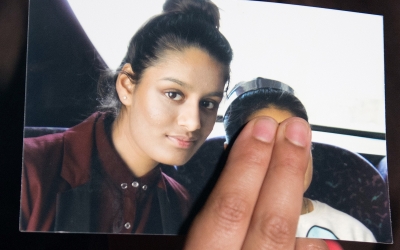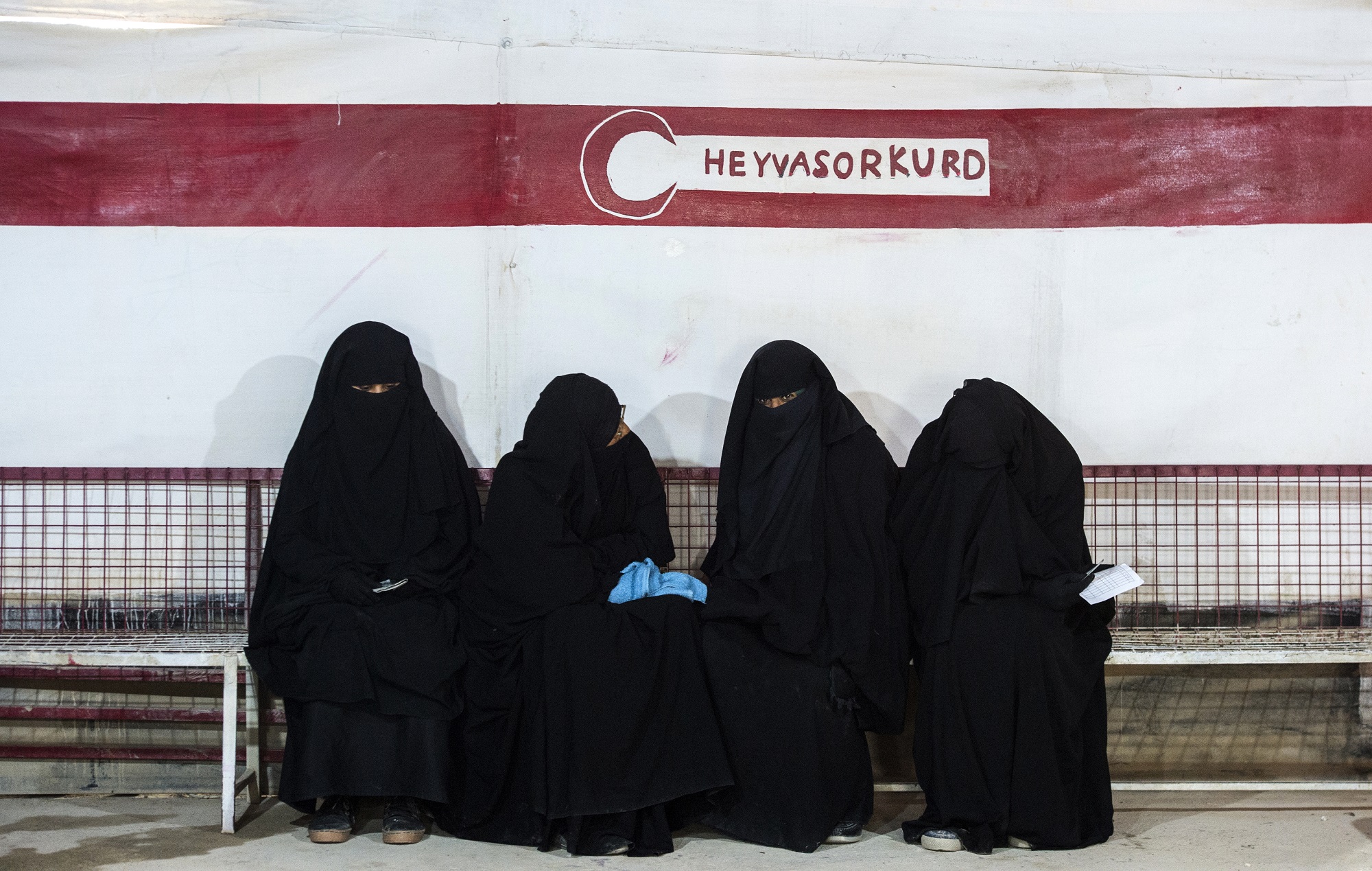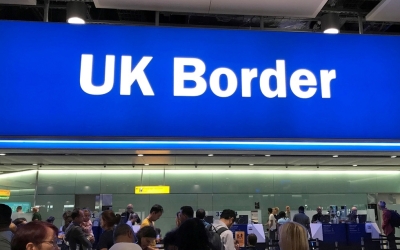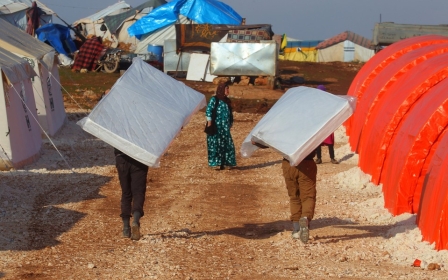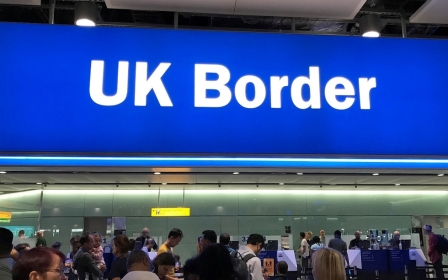UK government faces legal fight to block return of Islamic State teen
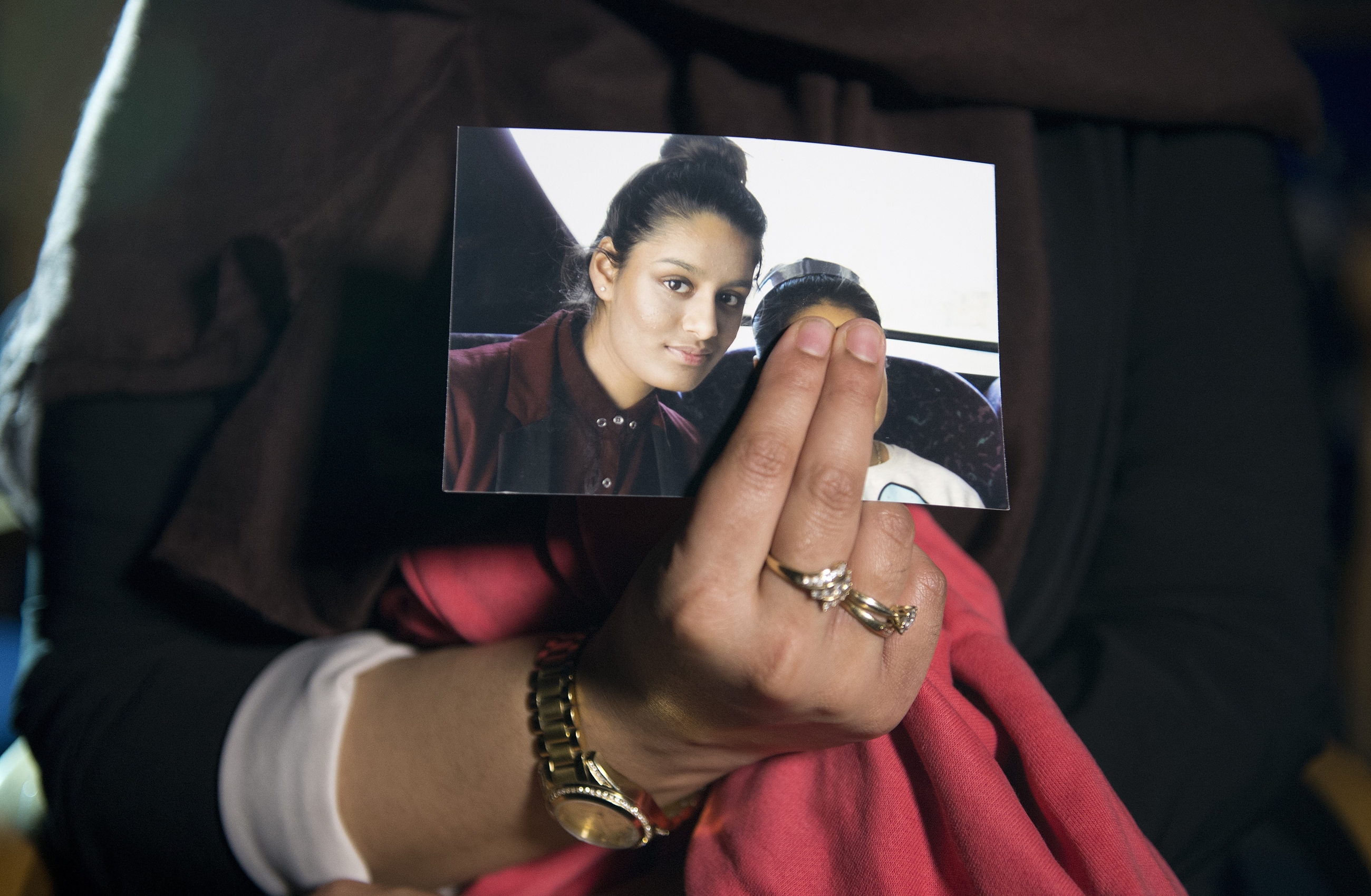
Efforts by British Home Secretary Sajid Javid to prevent the return of a teenager from London who absconded to Islamic State-controlled Syria could be thwarted by a recent legal ruling ordering the government to restore the citizenship rights of two British men of Bangladeshi descent suspected of involvement in terrorism.
Shamima Begum, a 19-year-old from east London, said on Thursday that she wanted to return to the UK after the Times newspaper tracked her down to the al-Hawl refugee camp in northeastern Syria to where she had recently fled from the last pocket of IS territory.
Begum made headlines in the UK in February 2015 when, then aged 15, she and two school friends were able to leave the country and travel to Syria via Turkey, joining another friend who had already made the journey.
Begum told the newspaper that she was nine months pregnant and wanted to return to the UK because she was concerned for the health of her unborn baby. She said that her two other infant children had both died in recent weeks as a consequence of sickness and malnutrition.
But Javid told the Times newspaper on Friday that he would use all available powers to prevent Begum from returning home, and cited deprivation of citizenship as a possible option.
“My message is clear - if you have supported terrorist organisations abroad I will not hesitate to prevent your return. If you do manage to return you should be ready to be questioned, investigated and potentially prosecuted,” said Javid.
“We have a range of tough measures to stop people who pose a serious threat from returning to the UK, including depriving them of their British citizenship or excluding them from the UK.”
Scores deprived of citizenship
In November, however, the government was ordered by an appeal court to restore the citizenship of two men of Bangladeshi descent on the grounds that the move had left them stateless.
The Home Office had cited “terrorism-related and national security grounds” for stripping both men of their citizenship.
One of them men was left stranded in Turkey where he said he had been involved in aid work helping Syrian refugees and was innocent of any wrongdoing.
But the Special Immigration Appeals Commission (SIAC) ruled in November that the Home Office had wrongly assessed that the two men were dual British-Bangladeshi nationals.
The ruling has implications for many more cases involving British nationals who have been subjected to the highly controversial and legally contentious citizenship deprivation orders in recent years because of government concerns about the threat of suspected fighters returning from Syria.
Some 14 people were deprived of citizenship on the grounds that their presence in the UK was “not conducive to the public good” in 2016. But the number swelled to 104 people in 2017, according to government figures.
MEE has previously reported on the case of British aid workers who have been stripped of citizenship and have ongoing appeals against the government.
The appeal process can take years, and some evidence presented by the government in appeal hearings is heard in secret and is not made available to appellants or their lawyers.
Begum’s parents are from Bangladesh, and Tasnime Akunjee, the family’s lawyer family, told the Times that he did not think the government could deprive their daughter of her British citizenship rights.
“They can’t [do that]. They have tried to make people stateless who they said had dual citizenship in the past,” he said.
Speaking at the Munich Security Conference on Friday, Alex Younger, the head of the UK's Secret Intelligence Service, also known as MI6, said that the government could not stop British nationals who had travelled to IS-controlled territory from returning home.
But he said: "Anyone who has put themselves in this situation can expect to be questioned and investigated and potentially prosecuted, if they return to our jurisdiction."
The government can take other measures to obstruct Begum in her efforts to return to the UK.
She is currently being held by the Syrian Democratic Forces, with no access to British consular services, and Security Minister Ben Wallace said on Thursday he would not "risk British people’s lives to go looking for terrorists or former terrorists in a failed state”.
The government could also make Begum the subject of a temporary exclusion order, a measure introduced in 2015 as a way to control the return of a British national suspected of involvement in terrorism-related activity.
According to the latest government figures, nine temporary exclusion orders were issued in 2017.
New 'designated areas' law
Javid said on Friday that Begum would be investigated and prosecuted if she returned to the UK, and highlighted a new “designated areas” law approved by parliament last week which in the future will give the government powers to make it an offence to travel to regions deemed to pose a security threat to the UK.
Ministers and senior officers cited the example of British nationals travelling to Syria to engage in terrorist-related activity as the reason the law was necessary.
The Home Office said that the law would come into force in the coming months.
Critics argue that it risks potentially criminalising aid workers, journalists and others with legitimate reasons to travel to war zones.
“My message is clear: if you have supported terrorist organisations abroad I will not hesitate to prevent your return. If you do manage to return you should be ready to be questioned, investigated and potentially prosecuted,” said Javid.
“We closely monitor any returnees who pose a risk and new terror legislation passed this week allows us to make travelling to certain designated regions an offence.”
Begum’s family and supporters have called for her to be allowed to return to the UK, citing the fact that she had travelled to Syria as a minor and had been “radicalised” online.
In a statement on Friday to ITV News the family said they were shocked by Begum's lack of remorse after she had told the Times that she did not regret going to Syria.
"To us, those are the words of a girl who was groomed at the age of 15; we are also mindful that Shamima is currently in a camp surrounded by IS sympathisers and any comments by her could lead directly to danger to her and her child," they said.
"We welcome an investigation in what she did while she was there [in Syria] under the principles of British justice and would request the British government assist us in returning Shamima and her child to the UK as a matter of urgency.”
Mohammad Uddin, the father of one of the other east London girls who went to Syria and is believed to still be alive, said: "They were not able to form their own opinions because they had been brainwashed. They went when they were very young and it’s not a big deal if they realise what they did is wrong. We should forgive them."
Uddin told the Daily Mail he had last heard from his daughter, Sharmeena Begum (no relation to Shamima) via a WhatsApp message three months ago.
Middle East Eye delivers independent and unrivalled coverage and analysis of the Middle East, North Africa and beyond. To learn more about republishing this content and the associated fees, please fill out this form. More about MEE can be found here.


